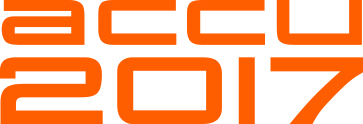38 C++ User Group Meetings in November
The monthly overview on upcoming C++ User Group meetings
C++ User Group meetings in November 2016
by Jens Weller
From the article:
This month features 38 C++ User Group meetings already! Plus several C++ Conferences, including Meeting C++ 2016! I included since this month also the LLVM groups which are meeting, there are a few. This is why this month has also 12 new User Groups, with the latest additions of a new group in London and Melbourne!
There are 12 new C++ User Groups: Kitchener, OT, Brussels, Cluj (Qt), Berlin (llvm), St. Petersburg (llvm), Paris (llvm), Bay area (llvm), Cambridge (llvm), Denver, Minsk, London and Melbourne.


 ACCU’s Overload journal of October 2016 is out. It contains the following C++ related articles.
ACCU’s Overload journal of October 2016 is out. It contains the following C++ related articles.